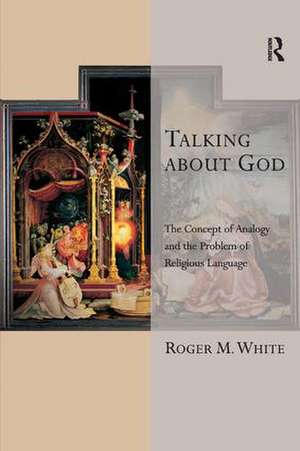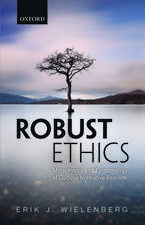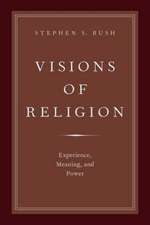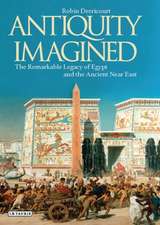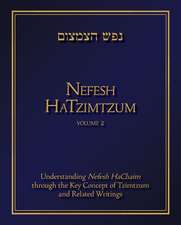Talking about God: The Concept of Analogy and the Problem of Religious Language: Transcending Boundaries in Philosophy and Theology
Autor Roger M. Whiteen Limba Engleză Paperback – 24 mai 2010
Din seria Transcending Boundaries in Philosophy and Theology
-
 Preț: 411.81 lei
Preț: 411.81 lei -
 Preț: 411.64 lei
Preț: 411.64 lei -
 Preț: 414.32 lei
Preț: 414.32 lei -
 Preț: 386.39 lei
Preț: 386.39 lei -
 Preț: 462.81 lei
Preț: 462.81 lei -
 Preț: 385.47 lei
Preț: 385.47 lei -
 Preț: 469.34 lei
Preț: 469.34 lei -
 Preț: 469.34 lei
Preț: 469.34 lei -
 Preț: 382.36 lei
Preț: 382.36 lei -
 Preț: 384.86 lei
Preț: 384.86 lei -
 Preț: 389.38 lei
Preț: 389.38 lei - 22%
 Preț: 258.14 lei
Preț: 258.14 lei -
 Preț: 436.14 lei
Preț: 436.14 lei -
 Preț: 409.51 lei
Preț: 409.51 lei - 13%
 Preț: 309.63 lei
Preț: 309.63 lei -
 Preț: 386.39 lei
Preț: 386.39 lei -
 Preț: 363.00 lei
Preț: 363.00 lei - 18%
 Preț: 844.81 lei
Preț: 844.81 lei -
 Preț: 442.07 lei
Preț: 442.07 lei -
 Preț: 382.75 lei
Preț: 382.75 lei
Preț: 415.24 lei
Nou
Puncte Express: 623
Preț estimativ în valută:
79.47€ • 86.29$ • 66.75£
79.47€ • 86.29$ • 66.75£
Carte tipărită la comandă
Livrare economică 23 aprilie-07 mai
Preluare comenzi: 021 569.72.76
Specificații
ISBN-13: 9781409400424
ISBN-10: 1409400425
Pagini: 220
Dimensiuni: 156 x 234 x 12 mm
Greutate: 0.43 kg
Ediția:1
Editura: Taylor & Francis
Colecția Routledge
Seria Transcending Boundaries in Philosophy and Theology
Locul publicării:Oxford, United Kingdom
ISBN-10: 1409400425
Pagini: 220
Dimensiuni: 156 x 234 x 12 mm
Greutate: 0.43 kg
Ediția:1
Editura: Taylor & Francis
Colecția Routledge
Seria Transcending Boundaries in Philosophy and Theology
Locul publicării:Oxford, United Kingdom
Cuprins
Contents: Preface; Preamble: analogy and talking about God; The mathematical roots of the concept of analogy; Aristotle: the uses of analogy; Aristotle: analogy and language; Thomas Aquinas; Immanuel Kant; Karl Barth; Final reflections; Bibliography; Index.
Notă biografică
Roger M White, Senior Fellow, The Department of Philosophy, The University of Leeds, UK
Recenzii
'Grounding its sophisticated analyses and meticulous scholarship in an authoritative study of Euclid and Aristotle, this book proceeds to sensitive, incisive, critical examinations of Aquinas, Kant and Barth on concepts of analogy and their deployments in talking of God: a masterly and original contribution to the histories of science, philosophy and theology and to religious thought itself.' Jonathan Hodge, University of Leeds, UK 'Finally a book on religious language by an accomplished philosopher of language! Talking about God is a conceptual history of the notion of analogy from Aristotle through Aquinas and Kant to Barth that is both deeply informed in its scholarship and philosophically sensitive and acute. I expect this study to become the definitive work on analogical predications and talk about God more generally. I learned an immense amount reading it.' Josef Stern, The University of Chicago, USA 'It is hard to imagine a better book on this subject, and it is hard to imagine someone better equipped to write it than Roger White. Drawing on his high-level training in mathematics and theology, and his lifetime of scholarship in logic and philosophy of language, White has produced a book that is at once erudite and spirited, informative and closely-argued, and - perhaps most importantly - genuinely useful to serious students of theology and philosophy of religion. This is a reliable guidebook for the philosopher or theologian who wishes to make sense of talk about God without falling into anthropomorphism, nonsense or worse.' Mark T. Nelson, Westmont College, USA '... Kaye is eminently equipped to speak into this situation. What he has to say is informed, insightful, weighty, and well worth considering.' Church Times 'White’s in-depth study of analogy provides a careful and thought-provoking reading of relevant works of Aristotle, Aquinas, Kant, and Barth. His selection of quotes from primary sources and frequent use of examples support his points
Descriere
A fundamental question for theology is the question how are we to understand the claims that we make about God. The only language we can understand is the language we use to talk about human beings and their environment. How can we use that language to talk about God while respecting the infinite difference between God and humanity? This book aims to clarify and answer this question by analyzing the concept of analogy.
